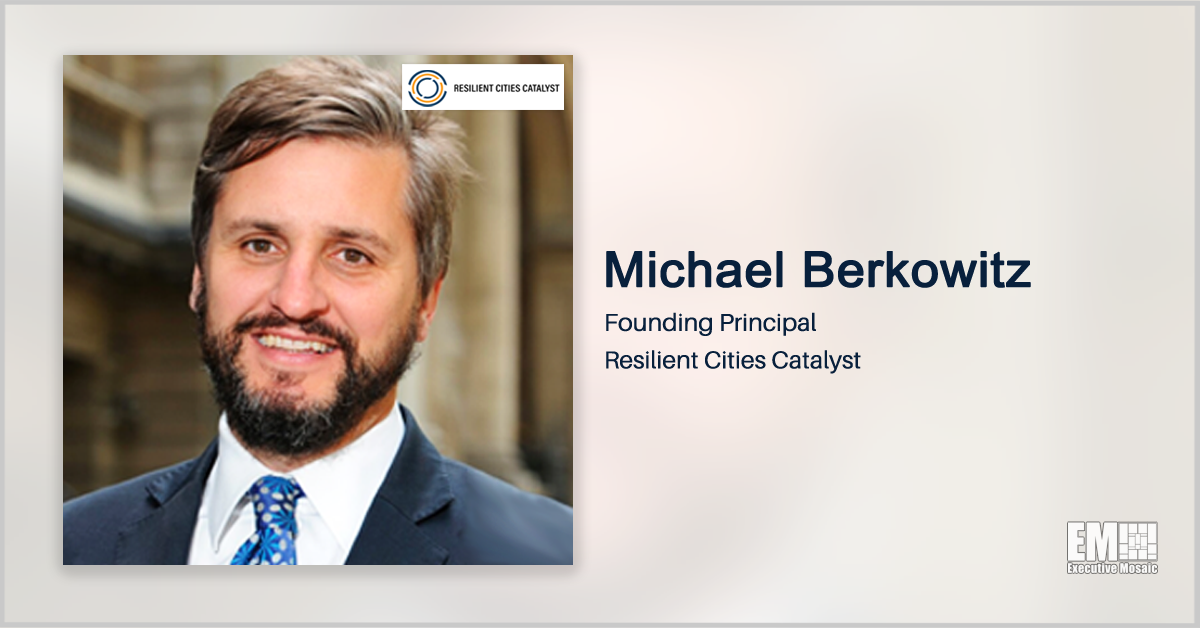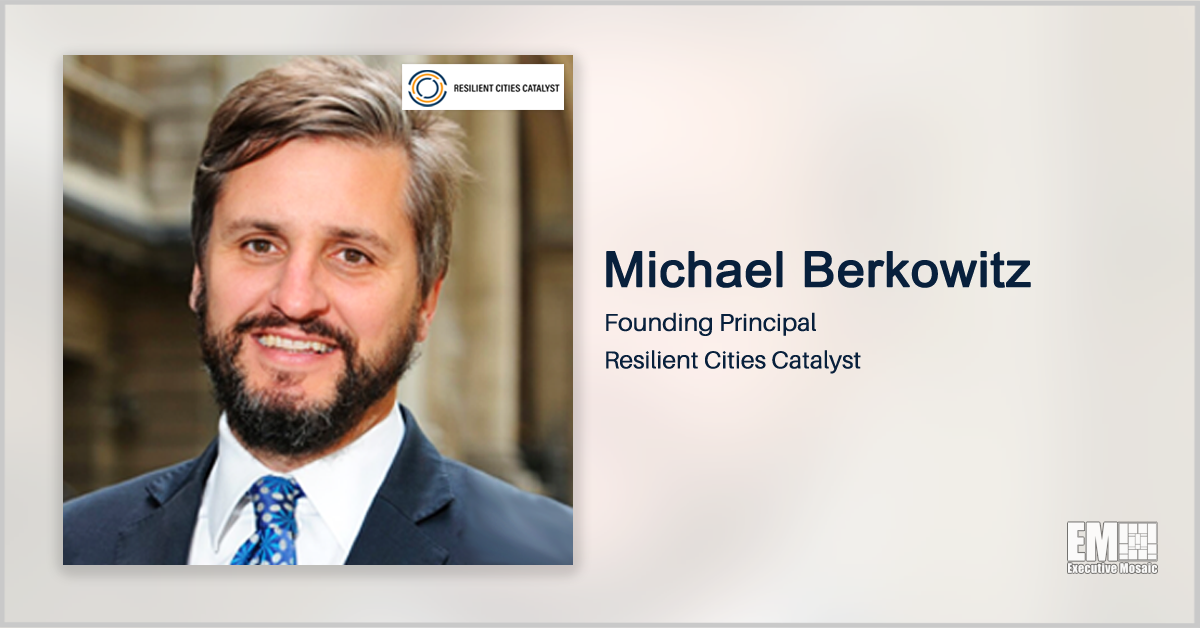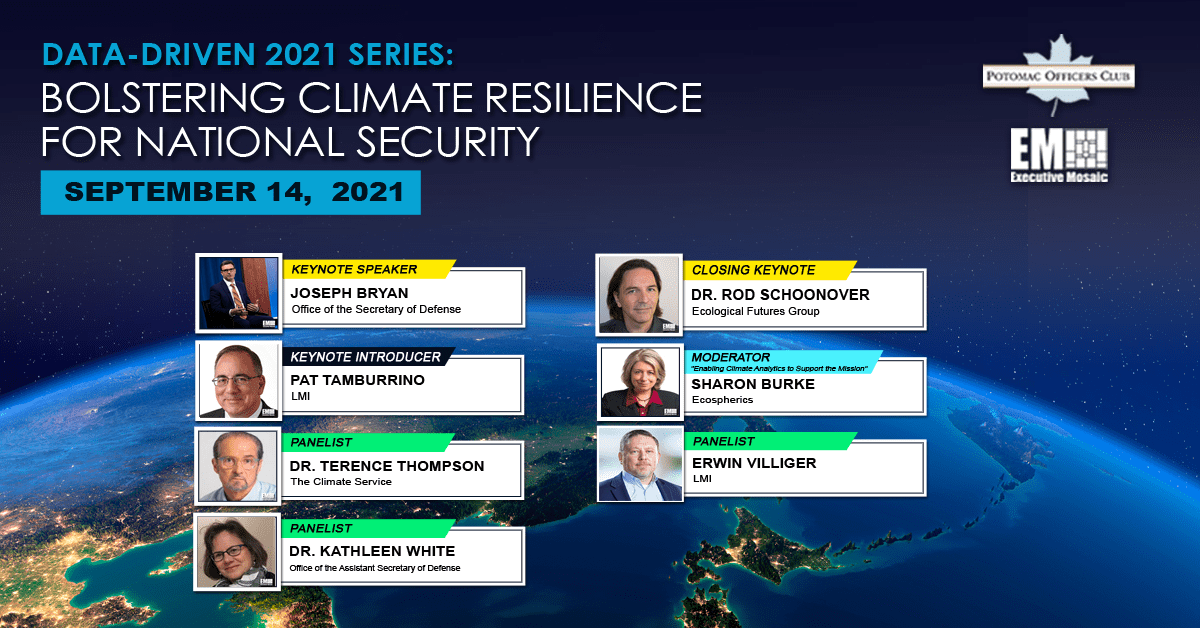GovCon Wire Events hosted its Climate Resilience: Reducing Risk and Creating Opportunities Fireside Chat on Thursday, which gathered together leading climate experts in a timely discussion on how industry is partnering with city, state and federal governments and communities to implement robust climate resilience and adaptation plans as extreme weather threats continue to remain at the forefront of national security priorities.
Michael Berkowitz, a founding principal of Resilient Cities Catalyst, served as the event’s keynote speaker and delivered an address focused on how he uses insights from his emergency response work to lead cities around the world in implementing climate solutions that bolster resilience, positively impact communities and lay the groundwork for future innovations in climate adaptation.
SAIC’s Chief Climate Scientist Steve Ambrose acted as the moderator for the event and fostered an insightful conversation with Berkowitz on the future of climate resilience and how organizations around the world are working to protect their communities and critical assets in the face of developing climate challenges.
If you missed Thursday’s event, visit the GovCon Wire Events page to watch the full Climate Resilience: Reducing Risk and Creating Opportunities Fireside Chat and other GovCon sector webinars on-demand.
Berkowitz began the fireside chat by defining resilience, as it relates to climate adaptation, as “the capacity of a community to survive and thrive in the face of uncertainty.” However, he explained further that the climate approaches that have been implemented in the past are not providing a comprehensive understanding of what resilience looks like in today’s complex environment.
“We’ve traditionally thought about resilience to disaster in terms of good emergency response, public safety and good, robust infrastructure,” Berkowitz noted. “But what we’re coming to understand is that it’s more about the stresses that a community is under that determine how it performs.”
Some of the key factors that play a role in determining resilience, Berkowitz described, include the equity and diversity of the economy, the cohesiveness of the community, the governance structures in place and the ability of multiple stakeholders to provide input.
Ambrose highlighted that these community stresses, along with the concept of environmental justice, were largely introduced to the public consciousness for the first time in 2005 following the Hurricane Katrina disaster in New Orleans, Louisiana.
Responding, Berkowitz concurred that “the story of Katrina is as much about corrupt institutions, racism, poor public health, poor life chances and isolated communities as it is about other climate and environmental factors” such as flooding, rising sea temperatures and storm surges.
Berkowitz explained that Katrina sparked a “real awakening” that both the social factors and the environmental factors are “connected in real and meaningful ways,” and that forward progress regarding climate change will be most impactfully achieved through addressing issues on both sides of the coin.
The ultimate goal, Berkowitz said about his work helping cities prepare for the uncertain future of climate change, is to leave cities with the right tools, education and capacity to protect themselves and their community members on their own.
“One really important principle that we work under is how do we help the city become better at doing the things that it wants to and needs to do, and how do we help them see a little bit differently what those things are?”
“You want strong, diverse leadership with a broad range of stakeholders at the table,” Berkowitz answered. “The more you have that capacity, the more resilient your city or your community is going to be.”
To hear the full conversation between climate experts Michael Berkowitz and Steve Ambrose, visit GovCon Wire Events, where you can watch the Climate Resilience: Reducing Risk and Creating Opportunities on-demand now.
On Dec. 7, GovCon Wire Events will host its Defense Acquisition Priorities Forum, during which distinguished federal and industry defense experts will gather to examine the current strategies, challenges and priorities influencing acquisitions in the defense sector today.
Keynote speaker Christopher O’Donnell, acting assistant secretary of defense for acquisition for the Department of Defense, will deliver an insightful address on what’s next for defense agencies as they work to match the speed of innovation and better secure the nation.
Visit GovCon Wire Events to register for the Defense Acquisition Priorities forum on Dec. 7.







